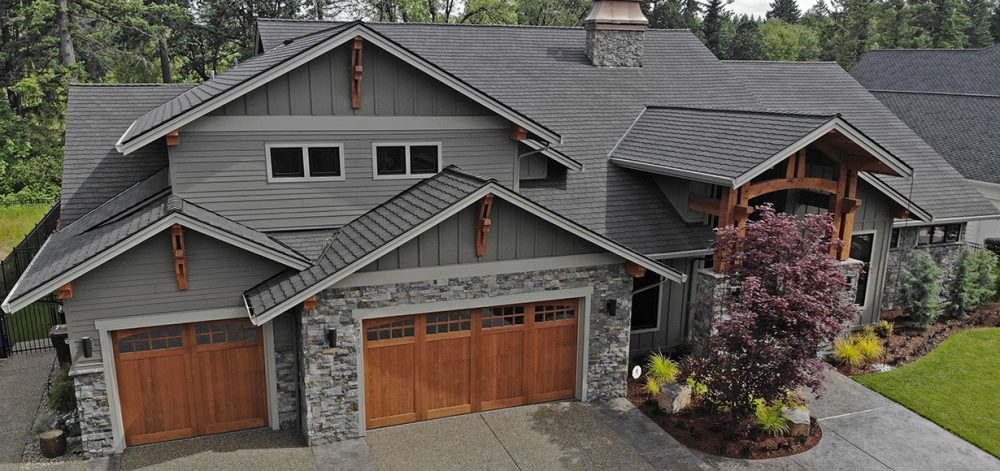A custom staircase is more than just a functional element in your home – it’s a central design feature that can add warmth, elegance, and value to any space. When it comes to building a staircase, selecting the right wood is crucial. As a leading wood door wholesaler, Nick’s Building Supply knows the importance of quality materials in every project.
Why Wood Selection Matters for Your Staircase
The wood you choose for your staircase influences not only the aesthetic but also the durability, maintenance, and long-term performance of your stairs. With so many wood types available, from traditional hardwood to more exotic options, it’s essential to pick one that aligns with your needs and style preferences.
Aesthetic Considerations: Defining the Look of Your Staircase
The aesthetic appeal of your staircase is one of the most visible elements in your home. The grain pattern, texture, and color of the wood will determine the overall tone of the space. Are you aiming for a traditional, rustic appearance or a sleek, modern look?
- Oak remains a popular choice for its pronounced grain and versatility, offering a range of light to medium brown tones that suit both classic and contemporary designs.
- Walnut, known for its deep, rich coloration and fine grain, imparts a sense of sophistication and luxury.
- Maple provides a lighter, more subdued appearance, making it an excellent option for modern or minimalist interiors.
- Cherry with its warm reddish-brown hues, ages beautifully and brings a timeless warmth to any home.
Each wood species offers unique visual characteristics, so it is essential to select one that aligns with your personal style and complements the surrounding design elements in your home.
Durability: Ensuring Longevity and Performance
Given that staircases are subject to significant foot traffic, the durability of the wood is a crucial consideration. The wood chosen must withstand daily wear and tear without compromising its aesthetic appeal or structural integrity.
- Hardwoods such as oak, hickory, and maple are ideal for staircases, offering strength, resistance to impacts, and long-term durability.
- Exotic hardwoods like Brazilian cherry and mahogany are known for their superior hardness and resilience, making them excellent choices for high-traffic areas.
While softwoods like pine are less expensive, they are more susceptible to dents and scratches, making them less suitable for areas of heavy use.
Maintenance: Evaluating Upkeep Requirements
Wooden staircases, like any other feature in the home, require maintenance to preserve their beauty and functionality. Some words are easier to preserve their beauty and functionality. Some woods are easier to maintain than others, so it is essential to consider how much time and effort you are willing to invest in the upkeep of your staircase.
- Maple and oak are relatively low-maintenance, requiring only routine cleaning and occasional refinishing to maintain their appearance.
- Exotic woods like ipe and teak offer natural resistance to moisture and wear, requiring minimal upkeep.
The finish applied to the wood will also affect its durability and maintenance needs. A high-quality finish will protect the wood from wear and tear, reducing the need for frequent refinishing or repairs.
Budget: Balancing Quality and Cost
Budget is a significant factor when selecting wood for a custom staircase. While some exotic hardwoods may offer exceptional durability and beauty, they also tend to be more expensive. It is important to find a balance between cost and quality that fits within your project’s financial constraints.
- Oak and maple offer a favorable balance between affordability, strength, and aesthetic appeal, making them popular choices for many homeowners.
- Pine is a more economical option, though it may require more frequent repairs or refinishing due to its softer nature.
- Walnut and mahogany are premium choices that offer unparalleled beauty and durability but come at a higher price point.
Nick’s Building Supply offers a diverse selection of wood species to accommodate various budgets while ensuring that you receive the highest quality materials for your project.
Environmental Considerations | Choosing Sustainable Wood
Sustainability is increasingly important to homeowners and builders alike. Selecting wood from responsibly managed forests can reduce the environmental impact of your project while ensuring that the materials used are of the highest quality. When choosing wood for your staircase, consider options certified by the Forest Stewardship Council (FSC), which ensures responsible sourcing.
- Bamboo is an eco-friendly option due to its rapid growth and renewability.
- Reclaimed wood offers a sustainable alternative by repurposing materials from older structures, adding unique character to your staircase.
- Common hardwoods like oak and walnut are often sourced from sustainable forests making them environmentally conscious choices.
Achieving the Perfect Custom Staircase
Selecting the perfect wood for your custom staircase involves a careful consideration of aesthetics, durability, maintenance, budget, and sustainability. By understanding the characteristics of different wood species, you can make an informed decision that enhances both functionality and design of your home.
At Nick’s Building Supply, we pride ourselves on providing a wide selection of premium woods suitable for any custom staircase project. Whether you are seeking the timeless appeal of oak, the richness of walnut, or the strength of maple, our expert team is here to help you! Call 219-663-2279 today for more information!
